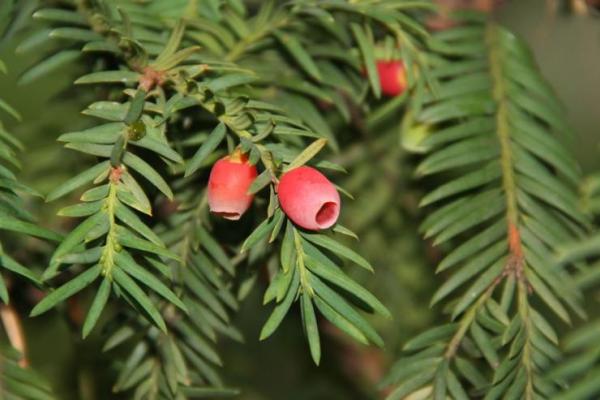Welcome to the LIFE BACCATA project, Conserving and restoring the yew forests in the Cantabrian Mountains
25-05-2017

The LIFE BACCATA project works for the conservation and restoration of the priority habitat of the yew, currently threatened and in regression, in fifteen places of the Natura 2000 Network of the Cantabrian Mountains and belonging to Galicia, Castile and León, and País Vasco.
The yew habitat, also present in other European countries such as Portugal, France, Italy and Greece, is now in an unfavorable and endangered conservation status in the Atlantic region of Spain, and unfavorable or bad in the Mediterranean region, according to the cataloging of the Habitats Directive of the European Union.
The LIFE BACCATA project will operate exclusively on a large area of the Cantabrian Mountains, although the study and the obtained results will have an international reach when finding territories in Portugal, France, Italy and Greece that present this type of habitat, similarly threatened.
The lines of work are developed around:
Know, improving the knowledge of the species of Taxus baccata and its habitat through the analysis of its current state and the threats that threaten its survival. This project aims at being a generator of applied technical knowledge and technical reference to later design the appropriate conservation actions and the reconciliation of other uses, within the European Union.
Conserve, protect and extend this habitat through the application of specific silvicultural treatments, eliminating the exotic species that endanger it, cultivating the plants characteristic of these habitats and applying genetic control and conservation measures to ensure their future.
Disseminate, informing and sensitize society about the importance of the natural and sustainable recovery and preservation of this unique species and its habitat, and of the potential socioeconomic benefits it can generate for the local population.
The yew has suffered a series of threats that directly affect the biodiversity of the areas it occupies, and for that reason, it requires an urgent action as a guarantee of its future.
These threats have originated over the years and are of various kinds, like fires, shortages, infrastructure construction, fragmentation and lack of connection between these natural spaces, or the impact of climate change. Individually or jointly, these threats have endangered the survival of this species, its habitat and biodiversity, therefore, it is necessary to act and guarantee its future in a sustainable way.
El proyecto LIFE BACCATA aplicará las medidas de protección y gestión forestal necesarias que promuevan la mejora del estado de conservación y restauración del tejo y las tejedas, fomentando su regeneración natural, y el de las especies de flora y fauna que los habitan, y contribuirá a frenar la pérdida de biodiversidad.
The LIFE BACCATA project is developed in collaboration with the University of Santiago de Compostela, the Government of Castile-Leon, Cesefor y la Basque Government Corporation for the development of the rural and marine environment, and the Hazi foundation.
The yew habitat, also present in other European countries such as Portugal, France, Italy and Greece, is now in an unfavorable and endangered conservation status in the Atlantic region of Spain, and unfavorable or bad in the Mediterranean region, according to the cataloging of the Habitats Directive of the European Union.
The LIFE BACCATA project will operate exclusively on a large area of the Cantabrian Mountains, although the study and the obtained results will have an international reach when finding territories in Portugal, France, Italy and Greece that present this type of habitat, similarly threatened.
The lines of work are developed around:
Know, improving the knowledge of the species of Taxus baccata and its habitat through the analysis of its current state and the threats that threaten its survival. This project aims at being a generator of applied technical knowledge and technical reference to later design the appropriate conservation actions and the reconciliation of other uses, within the European Union.
Conserve, protect and extend this habitat through the application of specific silvicultural treatments, eliminating the exotic species that endanger it, cultivating the plants characteristic of these habitats and applying genetic control and conservation measures to ensure their future.
Disseminate, informing and sensitize society about the importance of the natural and sustainable recovery and preservation of this unique species and its habitat, and of the potential socioeconomic benefits it can generate for the local population.
The yew has suffered a series of threats that directly affect the biodiversity of the areas it occupies, and for that reason, it requires an urgent action as a guarantee of its future.
These threats have originated over the years and are of various kinds, like fires, shortages, infrastructure construction, fragmentation and lack of connection between these natural spaces, or the impact of climate change. Individually or jointly, these threats have endangered the survival of this species, its habitat and biodiversity, therefore, it is necessary to act and guarantee its future in a sustainable way.
El proyecto LIFE BACCATA aplicará las medidas de protección y gestión forestal necesarias que promuevan la mejora del estado de conservación y restauración del tejo y las tejedas, fomentando su regeneración natural, y el de las especies de flora y fauna que los habitan, y contribuirá a frenar la pérdida de biodiversidad.
The LIFE BACCATA project is developed in collaboration with the University of Santiago de Compostela, the Government of Castile-Leon, Cesefor y la Basque Government Corporation for the development of the rural and marine environment, and the Hazi foundation.



